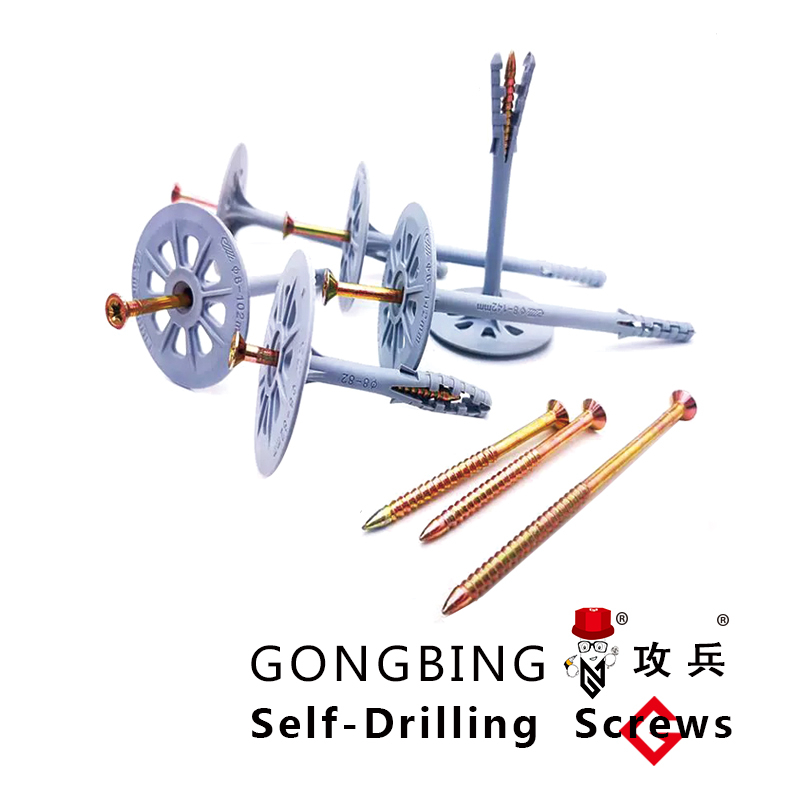Understanding Washer Head Machine Screws and Their Applications in Various Industries
Understanding Washer Head Machine Screws A Comprehensive Guide
Washer head machine screws are a pivotal component in various engineering and construction applications. Their unique design offers advantages that differentiate them from standard machine screws, making them suitable for specific tasks that require enhanced load distribution and resistance against loosening. In this article, we will delve into the characteristics, benefits, applications, and considerations associated with washer head machine screws.
What are Washer Head Machine Screws?
Washer head machine screws are defined by their specifically designed heads that incorporate a built-in washer or have a larger surface area resembling a washer. Generally, these screws feature a pan, flat, or round head that provides a larger bearing surface compared to standard screws. This design helps provide even pressure when the screw is tightened, which is especially beneficial in applications where thin materials could be crushed under the force of a standard screw.
Key Features
1. Design The head of a washer head machine screw is crafted to distribute the load over a wider area. This characteristic minimizes the likelihood of deforming the material being fastened, which is crucial when working with softer or more delicate substrates.
2. Material These screws are typically made from various metals, including stainless steel, carbon steel, and alloy steel, offering a range of strengths and corrosion-resistance properties. The choice of material often depends on the operating environment and specific application requirements.
3. Finish Most washer head machine screws come with various finishes, such as zinc plating, which not only enhances their appearance but also improves their resistance to rust and corrosion. Different finishes can be selected based on aesthetic preferences and environmental conditions.
4. Threading Like standard machine screws, washer head screws are available with different thread patterns (coarse or fine) and styles, catering to diverse fastening needs. The threading must be chosen based on the materials being joined and the load-bearing requirements.
Benefits of Washer Head Machine Screws
1. Load Distribution The primary advantage of washer head machine screws is their ability to distribute load evenly. This reduces the risk of damage to the materials being joined, especially when using thin or brittle materials.
washer head machine screws

2. Prevention of Loosening The larger head provides better resistance against loosening due to vibration, making these screws ideal for applications subject to movement or mechanical stresses.
3. Ease of Installation Washer head screws can often be installed quickly and efficiently, which can save time during assembly. Many models are designed to be used with standard tools, simplifying the fastening process.
4. Versatility These screws are versatile and can be used across various industries, including construction, automotive, and machinery. Their adaptability makes them a valuable addition to any toolbox.
Applications
Washer head machine screws are used in numerous applications across different sectors. In the construction industry, they are commonly employed in framing, roofing, and securing hardware. In automotive applications, they secure components and provide robustness under driving conditions. In machinery, these screws are essential for holding parts together in equipment where stability is critical.
Considerations When Using Washer Head Machine Screws
1. Material Selection Choosing the right material is crucial for ensuring longevity and performance. The selected screw must be suitable for the specific environment, whether it is exposed to moisture, chemicals, or high temperatures.
2. Sizing It’s important to select the correct size for the application. An oversized screw may damage the material, while an undersized screw may not provide adequate strength.
3. Installation Torque Proper installation torque is essential for achieving the desired fastening strength. Over-tightening can lead to material deformation or breakage, while under-tightening may result in loosening.
In conclusion, washer head machine screws play an integral role in various fastening applications due to their unique design and benefits. Understanding their characteristics, advantages, and appropriate applications will enable engineers and builders to make informed decisions, ensuring the integrity and durability of their projects. Whether you’re involved in construction, manufacturing, or DIY projects, incorporating washer head machine screws where appropriate can improve the overall performance and reliability of your assemblies.
-
Weatherproof Plastic Expansion Anchors for OutdoorNewsJun.06,2025
-
Sustainability in the Supply Chain: Eco-Friendly TEK Screws ProductionNewsJun.06,2025
-
Load-Bearing Capacity of External Insulation FixingsNewsJun.06,2025
-
Double Head Bolts: Enhancing Efficiency in Industrial MachineryNewsJun.06,2025
-
Corrosion Resistance in Chipboard Screws: Coatings for Wholesale DurabilityNewsJun.06,2025
-
Butterfly Toggle Bolts : Enhancing Structural ResilienceNewsJun.06,2025
